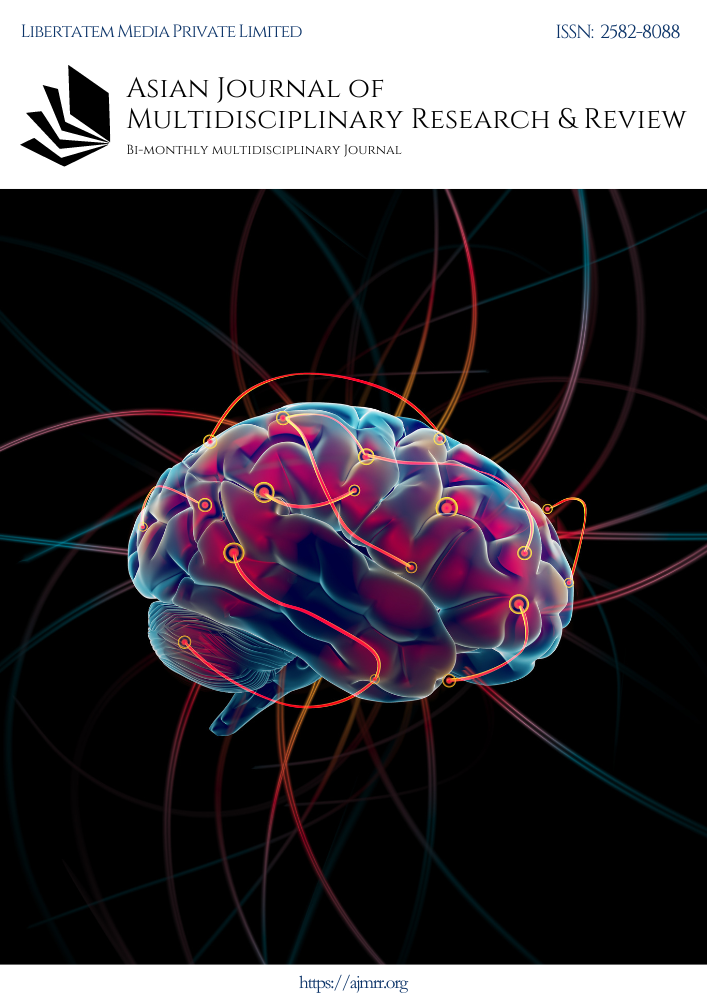IRAQI WOMAN SPEAKS: AN ALTERNATIVE NARRATIVE OF WAR IN RIVERBEND’S BAGHDAD BURNING
Keywords:
Women’s Studies, AlternativeAbstract
The US-led invasion into Iraq in 2003 triggered an endless war that unleashed new cycles of violence and left the region devastated. Following the 9/11 attacks on the US soil, the West conjured up an image of Iraq as a nerve centre of terrorism. In the months preceding the invasion, the dominant narrative that revolved around the War on Terror sought to project Iraq as a nation that needed to be “liberated” and “civilised” by the West. Iraqi women were particularly (mis)represented as oppressed victims of an abusive patriarchal system, devoid of agency and freedom. Voices emerging from Iraq in the subsequent years have countered this portrayal of their country. This paper explores the myriad ways in which Baghdad Burning by Iraqi blogger Riverbend challenges the dominant narrative of the US-led invasion and in the process, constructs an alternative narrative as a civilian who witnessed and suffered the impact of war from close quarters. As an Iraqi, Muslim woman who speaks her mind, she subverts the gendered liberation discourse of the war and argues that women’s freedom in fact plummeted with the radicalisation of the public space enforced by Iran-inspired Shia political parties in the new US-backed post-war regime. Her account of the invasion goes beyond the usual rhetoric of statistics and policies, and offers an insight into what the occupation and the ensuing violence meant to ordinary Iraqis. In doing so, she shatters the myth of Iraq and gives an insider’s perspective of the country whose modern establishments and secular ethos were destroyed by the invasion.
Downloads
Downloads
Published
Issue
Section
License

This work is licensed under a Creative Commons Attribution-NonCommercial-ShareAlike 4.0 International License.
License Terms
Ownership and Licensing:
Authors of research papers submitted to the Asian Journal of Multidisciplinary Research & Review (AJMRR) retain the copyright of their work while granting the journal certain rights. Authors maintain ownership of the copyright and grant the journal a right of first publication. Simultaneously, authors agree to license their research papers under the Creative Commons Attribution-ShareAlike 4.0 International (CC BY-SA 4.0) License.
License Permissions:
Under the CC BY-SA 4.0 License, others are permitted to share and adapt the work, even for commercial purposes, as long as proper attribution is given to the authors and acknowledgment is made of the initial publication in the Asian Journal of Multidisciplinary Research & Review. This license allows for the broad dissemination and utilization of research papers.
Additional Distribution Arrangements:
Authors are free to enter into separate contractual arrangements for the non-exclusive distribution of the journal's published version of the work (e.g., posting it to institutional repositories or publishing it in books), provided they acknowledge the initial publication of the work in the Asian Journal of Multidisciplinary Research & Review.
Online Posting:
Authors are encouraged to share their work online (e.g., in institutional repositories or on personal websites) both prior to and during the submission process to the journal. This practice can lead to productive exchanges and greater citation of published work.
Responsibility and Liability:
Authors are responsible for ensuring that their research papers do not infringe upon the copyright, privacy, or other rights of any third party. The Asian Journal of Multidisciplinary Research & Review disclaims any liability or responsibility for any copyright infringement or violation of third-party rights in the research papers.



